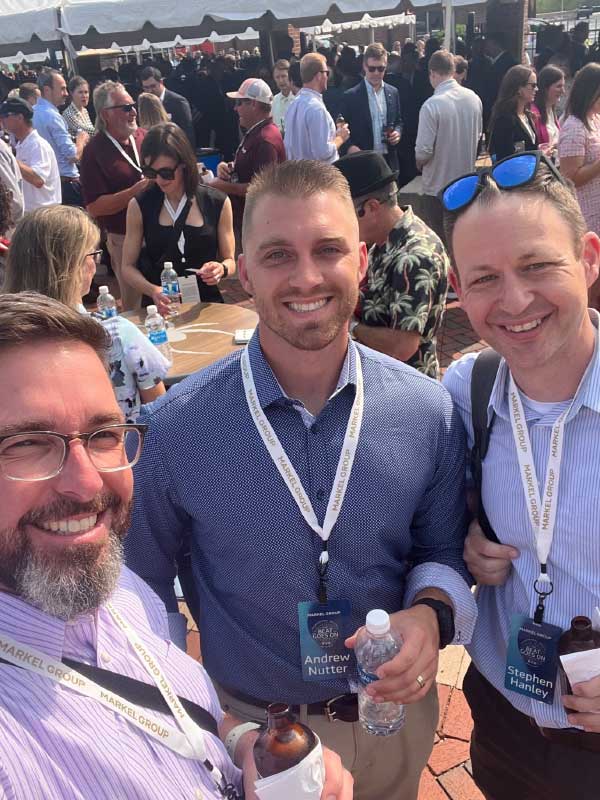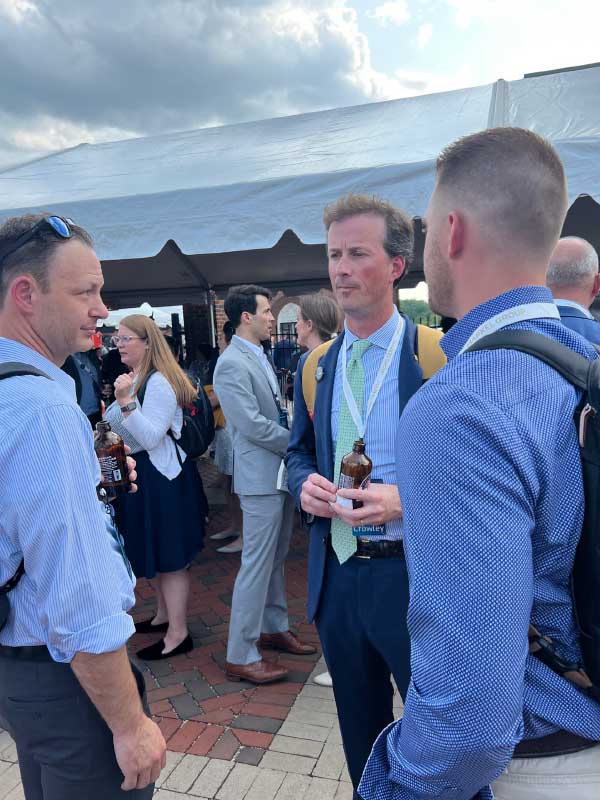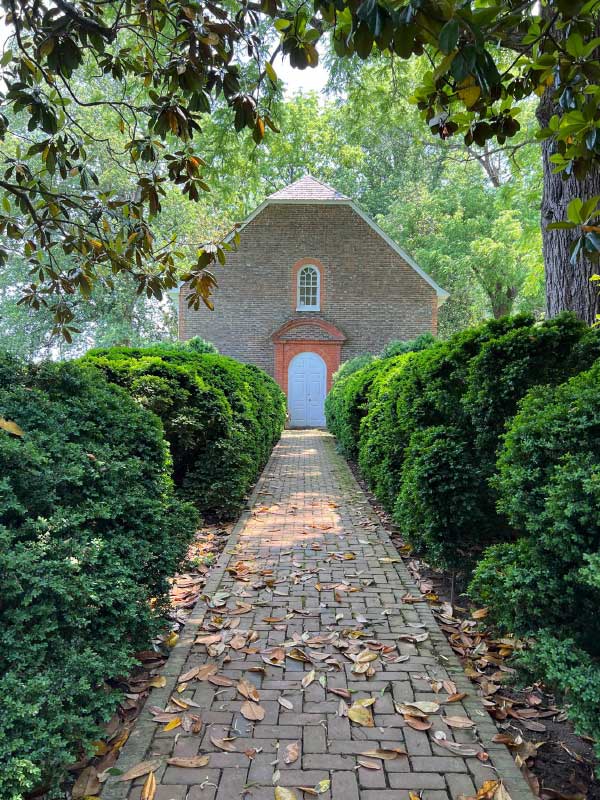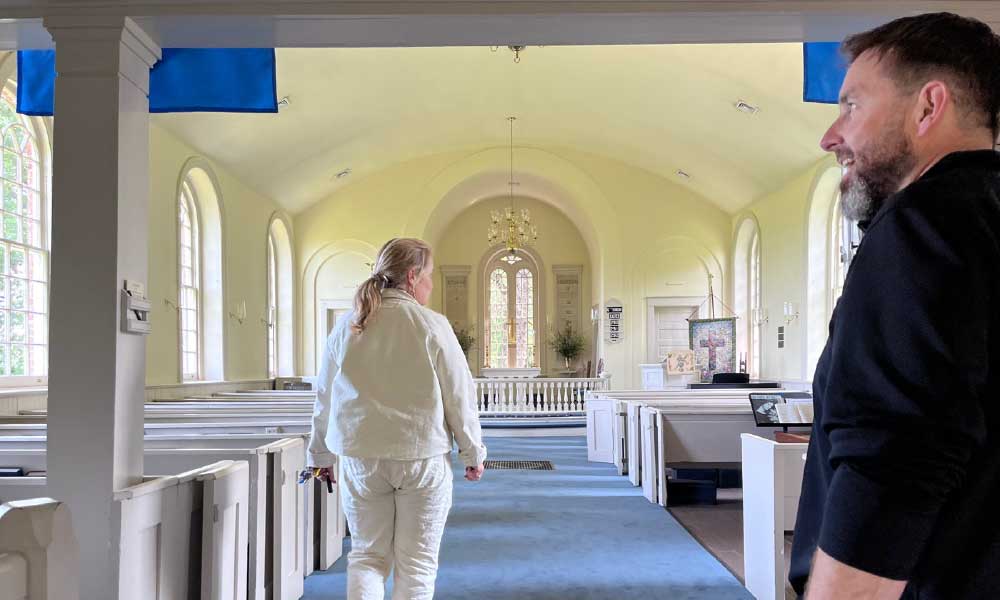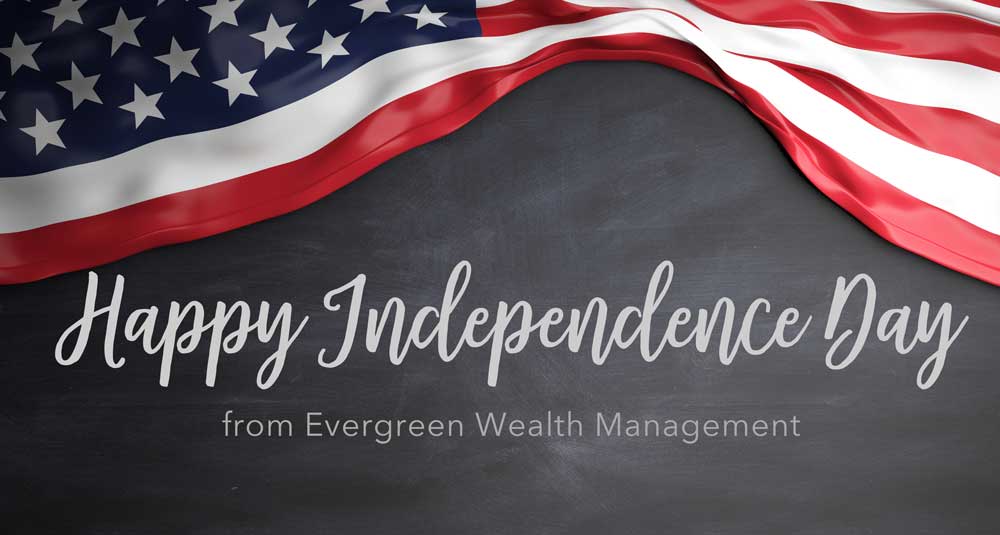
Writing the Independence Day article for you each year is a true joy for me.
What brings me more joy is your feedback expressing how much you enjoy these writings. Few things are more important than reviewing lessons and stories from history. Especially stories involving the freedom others fought for.
Past Independence Day Articles:
What Does Freedom Mean – Explains the adoption of the Declaration of Independence, what our founders knew they were giving up, and the inspiring story of Nathan Hale.
The Black Robe Regiment – The name the British gave to the colonial preachers who helped fuel the fire of liberty in the colonies. I talk about the history of these famous preachers of the revolution, along with three specific examples
Founding Frenemies – The story about the great friendship & conflict of two of the most famous founders of our country. Both of them died on the same day, America’s 50th anniversary.
Divine Preservation – The story of the fascinating preservation of the “Father of the Nation” and the original Commander & Chief. Along with 4 key pillars to preserve a nation.
Slavery & the Original Declaration of Independence – A quick overview of the original Declaration of Independence that was voted down, all because of a disagreement on the views on slavery.
Recent Trip
I recently went to a company shareholder meeting in Virginia with Jeff and Steve. (Scroll to the bottom to see pictures of the trip) The shareholder meeting went very well. We learned more about the company we own, along with insights and wisdom we were not expecting to gain. I took six pages of notes during the meeting.
The day after the meeting, Steve, Jeff, and I went on a historical bike tour with a guide along the James River. To give a brief history reminder, this is the James River from the Jamestown settlement that started in 1607. Maybe the Disney movie Pocahontas helps ring a bell.
One of the stops of the tour was at the Westover Episcopal Church. The church was established in 1613, and the building’s original bricks were laid in 1730. Both George Washington and Thomas Jefferson worshiped at this church at different times. I could not resist sitting in the pew and saying a prayer. This experience gave me the inspiration for this Independence Day Letter.
Christianity in the Early Colonies
In my article, The Black Robe Regiment, I mentioned the Black Robe Regiment was a nickname given to colonial preachers during the Revolution. As I focused more on the pastors during the Revolution, this writing is on the early preachers who would later influence the Declaration signers, and the signers themselves.
Christianity was at the center of many colonial settlements. Some settlements carried out their faith better than others. Without going into detail on each, the focus of Christianity was evident in the laws created in those first settlements (Jamestown – 1607, Plymouth – 1620, Massachusetts Bay – 1630, Maryland – 1634, Rhode Island – 1636, Connecticut – 1638, etc.).
Minister William Penn
In 1681, King Charles II gave Quaker minister William Penn the land between New York and Maryland (Pennsylvania) to repay the debt the king owed to Penn’s father. Although given to him, Penn knew the land was not the kings to give. Penn went to America and purchased the land from the Indians at their price.[1] Some of the land he bought multiple times from different tribes.[2] Penn’s view of the land was, “My God that has given it to me…will, I believe, bless and make it the seed of a nation.” [3]
In 1682, Penn wrote the Great Law of Pennsylvania, establishing “laws as shall best preserve true Christian and civil liberty, in opposition to all unChristian, licentious, and unjust practices, whereby God may have his due, Caesar his due, and the people their due.” [4]
Penn knew that good laws were necessary to have good government, but he also identified something even more important, explaining:
Governments, like clocks, go from the motion men give them….Wherefore governments rather depend upon men, than men upon governments. Let men be good and the government cannot be bad. If it be ill, they will cure it. But if men be bad, let the government be never so good, they will endeavor to warp and spoil it to their turn. I know some say, “Let us have good laws, and no matter for the men that execute them.” But let them consider that though good laws do well, good men do better; for good laws may want [lack] good men and be abolished or invaded by ill men; but good men will never want [lack] good laws, nor suffer [allow] ill ones. [5]
Penn would argue that the quality of people is more important than the quality of the laws.
When speaking to Russian Czar Peter the Great, Penn said, “If thou wouldst rule well, thou must rule for God—and to do that, thou must be ruled by Him.” [6] Being “ruled by Him” means one must believe in Christ as their Lord and Savior. The Pennsylvania Charter of Privileges comments about officials and their Christian faith,
[A]ll persons who also profess to believe in Jesus Christ, the Savior of the world, shall be capable…to serve this government in any capacity, both legislatively and executively. [7]
Reverend John Wise
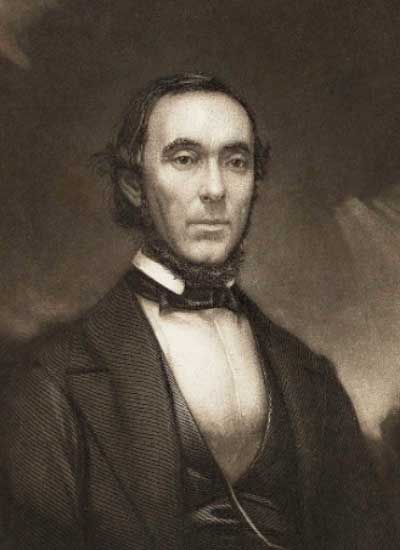 John Wise was a minister in Massachusetts. He was not only an impressive preacher but was tenacious towards governmental overreach. In 1687 he was against the royal Governor Sir Edmund Andros. The disagreement was over a levied tax imposed without the consent of the legislative body. Wise would sound the alarm of British Tyranny. He would be arrested and put in front of a crown-friendly jury for protesting. The jury was so infuriated by his defense they threatened to sell him as a slave. He would be fined and suspended from ministry, only to be vindicated a year later when Andros was removed as Governor.
John Wise was a minister in Massachusetts. He was not only an impressive preacher but was tenacious towards governmental overreach. In 1687 he was against the royal Governor Sir Edmund Andros. The disagreement was over a levied tax imposed without the consent of the legislative body. Wise would sound the alarm of British Tyranny. He would be arrested and put in front of a crown-friendly jury for protesting. The jury was so infuriated by his defense they threatened to sell him as a slave. He would be fined and suspended from ministry, only to be vindicated a year later when Andros was removed as Governor.
Rev. Wise was teaching that taxation without representation is tyranny[8], the consent of the people was the foundation of government[9], and that every man be acknowledged as equal to every man[10] as early as 1687. In 1772 the Sons of Liberty would reprint many of his works to reintroduce Biblical principles of government.[11] Many of his principles would be in the Declaration of Independence.
There are numerous examples, such as Minister Penn and Reverend John Wise, that demonstrate how America was established on biblical principles. Unfortunately, history has shown that even though something may start positively, it doesn’t necessarily stay that way due to human nature.
Many early colonists were devout Christians who had good intentions. However, it’s up to each generation to decide whether or not to continue following God’s Word. When Georgia was founded, more than a hundred years after the first colonies, many Americans began to move away from the faith. By the 1720s and 1730s, most colonists and churches had lost their seriousness and love for God.
The American Revival (The First Great Awakening)
Well-known minister Jonathan Edwards described Massachusetts as experiencing a “degenerate time” with “dullness of religion.” [12] Rev. Samuel Blair (who later became a chaplain of Congress) also said, “Religion lay, as it were, dying and ready to expire its last breath of life in this part of the visible church.” [13]
Between the 1730s to 1770s, the colonies experienced The First Great Awakening.
The Reverends of Georgia
Influential in Georgia’s founding was the Rev. Dr. Thomas Bray. Bray founded an organization to send missionaries to America, [14] and many of his associates [15] joined with General James Oglethorpe to start the Georgia Colony in 1732. [16]
One of the first settlers of Georgia was a group of persecuted Christians and Jews. When one of the groups touched shore in 1733, they knelt declaring,
Our end in leaving our native country was not to avoid want, God having given us plenty of temporal blessings; nor to gain the dung or dross of riches and honor; but singly this: to save our souls; to live wholly to the glory of God. [17]
The object of the devout Oglethorpe and others was “to make Georgia a religious colony.” [18] Oglethorpe invited Reverends John Wesley, Charles Wesley, and George Whitefield to fulfill the roles of chaplains in the colony, oversee Indian affairs, and construct orphanages.
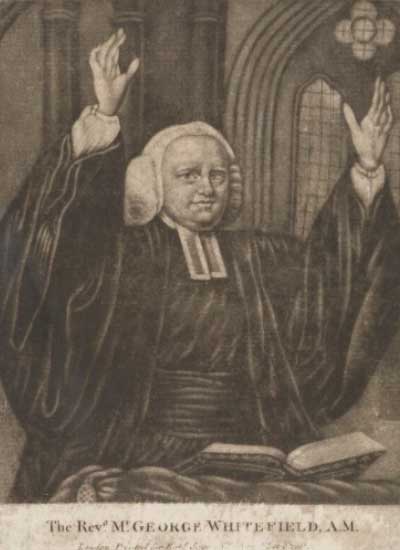
Reverend George Whitefield
Whitefield started in Georgia but would eventually preach to large crowds throughout the colonies in churches, streets, and open fields. Whitefield is thought to have preached 18,000 times throughout the colonies in thirty-four years.[19] It is estimated eighty percent of all Americans heard him speak. [20]
Benjamin Franklin developed a close friendship with the Rev. George Whitefield and often heard him preach. Franklin appreciated the great impact the revival had, saying:
It was wonderful to see the change soon made in the manners of our inhabitants. From being thoughtless or indifferent about religion, it seemed as if all the world were growing religious so [that] one could not walk through the town in an evening without hearing psalms sung in different families of every street. [21]
The Founding Documents of our Founding Documents
So who, or what was most influential to our founding fathers? Where did most of their wisdom come from? Where did most of their examples of morality, laws, government structure, rights of people, etc., come from?
One way to assess the answer is to understand who our founders cited the most during their writings. Some of you may have heard are Montesquieu, John Locke, John Wise, and Blackstone. All of whom were very influential. However, it was God’s Word quoted the most. During the 1760s to 1805, the Bible was 34% of all quotes by our Founding Fathers. [22] When looking at the decade during the signing of the Declaration (the 1770s), the Bible was 44% of all the quotes.[22]
After weeks of the Constitutional Convention, the delegation seemed to be at a standstill. Different states and groups brought their own agendas to form our new government, unwilling to budge from their plan proposals. Benjamin Franklin was 81 years old – experienced a long life ruled by Britain, signed the Declaration, and honorably served during the Revolution as a delegate and ambassador – is now witnessing what seemed to be a country approaching the finish line but unable to cross it. Eventually, he experienced enough and announced,
In this situation of this Assembly, groping as it were in the dark to find political truth, and scarce able to distinguish it when presented to us, how has it happened, Sir, that we have not hitherto once thought of humbly applying to the Father of lights to illuminate our understandings? In the beginning of the Contest with G. Britain, when we were sensible of danger we had daily prayer in this room for the divine protection. – Our prayers, Sir, were heard, & they were graciously answered…And have we now forgotten that powerful friend? or do we imagine that we no longer need his assistance? I have lived, Sir, a long time, and the longer I live, the more convincing proofs I see of this truth- that God Governs in the affairs of men… We have been assured, Sir, in the sacred writings, that “except the Lord build the House they labour in vain that build it.”… I therefore beg leave to move-that henceforth prayers imploring the assistance of Heaven, and its blessings on our deliberations, be held in this Assembly every morning before we proceed to business, and that one or more of the Clergy of this City be requested to officiate in that Service. [23]
Franklin requested the convention pause, pray to God to assist them and come to God before all future sessions. The Bible was influential in not just the everyday life of our Founding Fathers, but in how our government was formed. So why do we try separating God from our government?
Separation of Church and State
This argument of “Separation of Church and State” is overblown and used by those who are ignorant, or purposeful participants of removing God from our country. The belief someone cannot express their faith in schools, governments, and everyday life is not in any founding document. The phrase first appears in a letter Thomas Jefferson sent to the Danbury Baptist Association of Connecticut in 1802. [24] I encourage you to read this writing by Wallbuilders that explains why our public stance on this is misguided. I will continue with examples showing our founders did not believe the bible should be removed from education.
1. Thomas Jefferson was the President of the United States when Washington DC became the national capital. The new capital of the country was in the process of forming its own public school system. The trustees of the Washington DC Public Schools board included Thomas Jefferson himself.[25] He would actually be elected as the board president, which he turned down due to his presidency of our country. However, he is credited for outlining the education for Washington DC Public Schools.
The report in 1813 (about the 1812 school year) says students started learning to read from two books; The Bible and Dr. Watts Hymns. Yes, the Bible was FIRST when students were learning how to read. If Thomas Jefferson really wanted God out of schools, he would not have set the standard of the Bible at the beginning of education.
2. The first reading textbook for the American Colonies was the New England Primer.[26] Evidence of the Bible in the school system is from the beginning of letter memorization:
Letter A: A, A wise son maketh a glad father but a foolish son is the heaviness of his mother – Proverbs 10:1
Letter B: B, Better is a little with the fear of the Lord than great treasure with trouble – Proverbs 15:6
Letter C: C, Come into Christ with all ye who labor and are in heavy laden, and he will give you rest – Matthew 11:28
When learning letters, the education system thought it best to use the opportunity to memorize scripture.
 3. Fisher Ames was a framer of the Bill of Rights and is credited for coming up with the language for the First Amendment. Ames noticed all the new books put into the public schools were good in content and purpose. However, he was nervous about the time these books would take away from the Bible. He says,
3. Fisher Ames was a framer of the Bill of Rights and is credited for coming up with the language for the First Amendment. Ames noticed all the new books put into the public schools were good in content and purpose. However, he was nervous about the time these books would take away from the Bible. He says,
It has been the custom, of late years, to put a number of little books into the hands of children, containing fables and moral lessons… Why then, if these books for children must be retained, as they will be, should not the Bible regain the place it once held as a school book? Its morals are pure, its examples captivating and noble. [27]
Ames was making sure the Bible did not lose its place for being a schoolbook.
4. Benjamin Rush is considered the father of public schools. John Adams said of Rush, “There is not another person, out of my own family, who can die, in whom my personal happiness can be so deeply affected…. he has done more good in this world than Franklin or Washington.”[28]. I mentioned him briefly in my article Founding Frenemies. As the founder of public education, he wrote an essay in 1791 giving many reasons to never take the Bible out of public schools. [29] He said,
In contemplating the political institutions of the United States, I lament, that we waste to much time and money in punishing crimes, and take to little pains to prevent them. We profess to be republicans, and yet we neglect the only means of establishing and perpetuating our republican forms of government, that is, the universal education of our youth in the principles of Christianity, by means of the Bible; for this divine book, above all others, favours that equality among mankind, that reflect for just laws… [29]
In other words, the generation that takes the Bible and teachings of Christianity out of the education of our children, the more that generation will experience crime.
The Founding Fathers would not agree with our current views on the separation of church and state.
How Others viewed Christianity in America
Alexis de Tocqueville was a Frenchmen who visited after the Revolution and wrote his famous book Democracy in America. In the book he says,
Americans combine the notions of Christianity and of liberty so intimately in their minds that it is impossible to make them conceive the one without the other….Upon my arrival in the United States, the religious aspect of the country was the first thing that struck my attention; and the longer I stayed there, the more did I perceive the great political consequences resulting from this state of things, to which I was unaccustomed. In France I had almost always seen the spirit of religion and the spirit of freedom pursuing courses diametrically opposed to each other; but in America I found that they were intimately united, and that they reigned in common over the same country. [30]
Achille Murat was a French visitor who openly hated Christianity. He would write A Moral and Political Sketch of the United States of North America. He said,
[T]here is no country in which the people are so religious as in the United States…The great number of religious societies existing in the United States is truly surprising: there are some of them for everything. For instance, societies to distribute the Bible; to distribute tracts; to encourage religious journals; to convert, civilize, educate the savages; to marry the preachers; to take care of their widows and orphans; to preach, extend, purify, preserve, reform the faith; to build chapels, endow congregations, support seminaries; catechize and convert sailors, Negroes, and loose women; to secure the observance of Sunday and prevent blasphemy by prosecuting the violators; to establish Sunday schools where young ladies teach reading and the catechism to little rogues, male and female; to prevent drunkenness, and so forth. [31]
Although hostile towards Christianity, Murat still had to admit, “While a death-struggle is waging in Europe…it is curious to observe the tranquility which prevails in the United States.” [32]
The foundation of the United States was built on the principles of Christianity and the Bible. So much so writers and historians from other countries witnessed the same.
What about you?
I must conclude this writing with a question, What about you? Has reading about the faith and purpose that helped found our nation rekindled even the tiniest spark? The spiritual influence of Christianity post-apostles was arguably the most abundant during a time and location that created the greatest nation this world has ever known. You are experiencing the fruit whose seeds were planted by those who proclaimed Christ as their Lord and Savior.
If you feel lost in this world, feel the world is pushing you around, lacking purpose – have you placed your faith in Jesus Christ? I encourage you to seek the only Salvation offered by our creator; It is the life, death, and resurrection of Jesus Christ.
For those of you who claim Christ as your Lord and Savior; What are you doing? Why have most of you been silent about the ungodliness growing in our nation? Some of you even embrace the wickedness of our day. Willing to accept unholy laws and actions proposed by your government. Some of you are truly ignorant. I ask you to open your eyes and pay attention. Some of you are skirting around the issue with “reason.” Trying to use logic in your defense of accepting sinful behavior. You remind me of Isaiah 5, “Woe to those who call evil good and good evil, who put darkness for light and light for darkness, who put bitter for sweet and sweet for bitter! Woe to those who are wise in their own eyes, and shrewd in their own sight!” I speak on the “Method of Reason” that destroys nations in my article Impact of a Shrinking Population. I encourage you to read that section.
We will all stand in front of our creator. We will all give an account of our actions. How you are handling the ungodliness growing in our country will be questioned. Act in a way God would be proud of. As of now, none of us should be proud. To correct our mistakes, let us start by doing the same as our Founding Fathers did – as William Penn said,
“If thou wouldst rule well, thou must rule for God—and to do that, thou must be ruled by Him.”
If our Founding Fathers woke up today, they would not recognize the country they formed. They would be more ashamed of our lack of focus on God and his principles. We need another national awakening. What will you do about it?
[1] Mrs. Mary Hugh, The Life of William Penn (Philadelphia: Carey, Lee and Carey, 1828),pp. 94, 109.
[2] Samuel M. Janney, The Life of William Penn: With Selections from His Correspondence and Autobiography (Philadelphia: Friends Book Association, 1852), p. 442. [3] John Fanning Watson, Annals of Philadelphia and Pennsylvania (Philadelphia: John Pennington and Uriah Hunt, 1844), Vol. I, p. 82, from William Penn to Robert Turner on January 5, 1681. [4] Charter to William Penn, and Laws of the Province of Pennsylvania, Passed Between the Years 1682 and 1700 (Harrisburg: L.S. Hart, 1879), p. 107, “The Great Law or The Body of Laws, of the Province of Pennsylvania & Territories Thereunto Belonging,” December 1682. [5] Thomas Clarkson, Memoirs of the Private and Public Life of William Penn (London: Longman, 1813), Vol. I, p. 303. [6] Samuel M. Janney, The Life of William Penn: With Selections from His Correspondence and Autobiography (Philadelphia: Lippincott, Grambo & Co., 1852), p. 407, letter from William Penn to the Czar of Muscovy.[7] “Charter of Privileges Granted by William Penn, to the Inhabitants of Pennsylvania and Territories,” The Avalon Project, October 28, 1701 (at: https://avalon.law.yale.edu/18th_century/pa07.asp).
[8] David Otis Mears, Oberlin Lectures of 1829: The Pulpit and the Pews (Oberlin: Edward G. Goodrich, 1892), p. 87.
[9]John Wise,A Vindication of the Government of New England Churches (Boston: John Boyles, 1772), p. 5.
[10] John Wise, A Vindication of the Government of New England Churches (Boston: John Boyles, 1772), p. 26.
[11] See the 1772 Boston reprintings of: John Wise,A Vindication of the Government of New England Churches (Boston: John Boyles, 1772); John Wise, Churches Quarrel Espoused (Boston: John Boyles, 1772). For information about some of the subscribers/distributors of these printings of John Wise’s sermons, see: Clinton Rossiter, Seedtime of the Republic (New York: Harcourt, Brace, and Company, 1953), p. 225.
[12] Jonathan Edwards, A Faithful Narrative of the Surprising Work of God in the Conversion of Many Hundred Souls in Northampton (Edinburgh: Thomas Lumisden and John Robertson, 1738), p. 16[13] Joseph Tracy, The Great Awakening: A History of the Revival of Religion in the Time of Edwards and Whitefield (Boston: Charles Tappan, 1845), p. 26, by the Rev. Samuel Blair on August 6, 1744.
[14] Charles McLean Andrews and Frances Gardiner Davenport, Guide to the Manuscript Materials for the History of the United States to 1783 in the British Museum, in Minor London Archives, and in the Libraries of Oxford and Cambridge (Washington DC: Carnegie Institution of Washington, 1908), p. 331; and George Gresley Perry, A History of the English Church: From the Accession of Henry VIII to the Silencing of Convocation in the Eighteenth Century (London: John Murray, 1880), p. 561.
[15] William Stevens Perry, The History of the American Episcopal Church: 1587-1883 (Boston: James R. Osgood and Company, 1885), p. 143.
[16] “Charter of Georgia: 1732,” The Avalon Project (at: https://avalon.law.yale.edu/18th_century/ga01.asp); and “Trustee Georgia, 1732-1752,” New Georgia Encyclopedia, updated September 2, 2015 (at: https://www.georgiaencyclopedia.org/articles/history-archaeology/trustee-georgia-1732-1752).
[17] John Whitehead, Life of the Rev. John Wesley (Boston: Dow & Jackson, 1845), p. 288.
[18] Benson Lossing, A Pictorial History of the United States (New York: Mason Brothers, 1857), p. 130.
[19] Appleton’s Cyclopaedia of American Biography, James Grant Wilson and John Fiske, editors (New York: D. Appleton and Company, 1889), Vol. VI, p. 478, s.v. “Whitefield, George.”
[20] See, for example, “George Whitefield: Did You Know?” Christian History, April 1993 (at: https://www.christianitytoday.com/history/issues/issue-38/george-whitefield-did-you-know.html); and Dave Schleck, “CW to Recreate Visit of Famous Preacher,” Daily Press, December 16, 1995 (at: https://www.dailypress.com/news/dp-xpm-19951216-1995-12-16-9512160076-story.html).
[21] Benjamin Franklin, The Autobiography of Benjamin Franklin, John Bigelow, editor (Philadelphia: J.B. Lippincott & Company, 1868), p. 253.
[22] Donald S. Lutz, The Origins of American Constitutionalism (Baton Rouge: Louisiana State University Press, 1988), p. 141 – 143. [23] Benjamin Franklin, The Works of Benjamin Franklin, Jared Sparks, editor (Boston: Hilliard, Gray, and Company, 1840), Vol. V, pp. 154-155, “Motion for Prayers in the Convention” & James Madison, The Papers of James Madison, Henry D. Gilpin, editor (New York: J. & H. g. Langley, 1841), Vol. II, pp. 984-985, Benjamin Franklin on June 28, 1787. [24] See the text of the Danbury Baptists 1801 letter to Thomas Jefferson, and Jefferson’s 1802 reply here. [25] Records of the Columbia Historical Society (Washington, D. C.: Columbia Historical Society, 1895), Vol. 1, pp. 122-123, 127-128. [26] “The New England Primer: Introduction,” Indiana University; and various editions WallBuilders library owns, including from the years 1813, 1814, 1818 1820, 1821, 1822, 1823, 1824, 1838, 1843, 1849, 1897, 1899, and an undated “Twentieth Century Reprint.” [27] Works of Fisher Ames (Boston: T. B. Wait & Co., 1809), pp. 134-135, “School Books: First published in the Palladium, January, 1801.” [28] Pennsylvania History (Pennsylvania Historical Association: January 1950), Vol. XVII, No. 1, p. 9, L. H. Butterfield, “The Reputation of Benjamin Rush” from John Adams to Richard Rush on May 5, 1813 [29] Benjamin Rush, Essays, Literary, Moral, and Philosophical (Philadelphia: Thomas and William Bradford, 1806), pp. 94, 112-113, “A Defence of the Use of the Bible as a School Book,” March 10, 1791.[30] Alexis de Tocqueville, The Republic of the United States of America and Its Political Institutions, Henry Reeves, translator (Garden City, NY: A.S. Barnes & Co., 1851), Vol. I, pp. 335, 337.
[31] Achille Murat, A Moral and Political Sketch of the United States (London: Effingham Wilson, 1833), pp. 113, 132.
[32] Achille Murat, A Moral and Political Sketch of the United States (London: Effingham Wilson, 1833), p. 111.
A special thank you to Wallbuilders.com.
Evergreen Wealth Management, LLC is a registered investment adviser. Information presented is for educational purposes only and does not intend to make an offer or solicitation for the sale or purchase of any specific securities, investments, or investment strategies. Investments involve risk and unless otherwise stated, are not guaranteed. Be sure to first consult with a qualified financial adviser and/or tax professional before implementing any strategy discussed herein. Past performance is not indicative of future performance.

